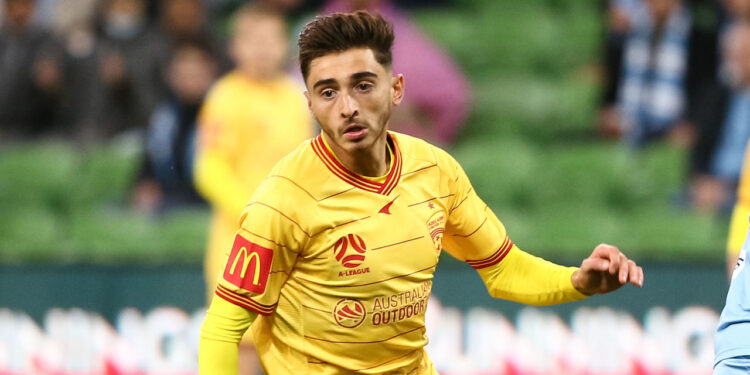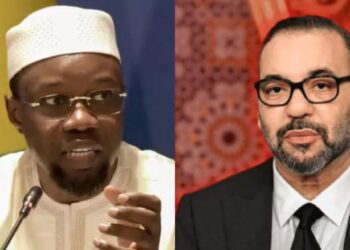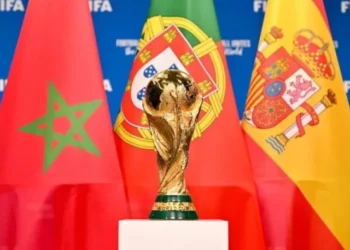Josh Cavallo says he’s scared to go to the World Cup in Qatar next winter, after the Adelaide United player came out as gay last month.
Cavallo became the only active out player last month, when he took to Instagram to announce his sexuality after ‘fighting’ with it for over six years.
The Australian full back has so far only represented his country at under 20 level, but has revealed that he would fear for his safety if called up for the senior World Cup in just over 12 months times.
Homosexuality is illegal in the Qatar and attracts a death penalty for Muslim men. And while Cavallo has received the backing of some footballers across the globe for being open about his sexuality, the 21-year-old admits he would be putting his life in danger if he boards the plane to next year’s world cup.
“I read something along the lines of that [they] give the death penalty for gay people in Qatar.
“So it’s something I’m very scared [of] and wouldn’t really want to go to Qatar for that, and that saddens me.
“At the end of the day the World Cup is in Qatar and one of the greatest achievements as a professional footballer is to play for your country.
“And to know that this is in a country that doesn’t support gay people and puts us at risk of our own life, that does scare me and makes me re-evaluate – is my life more important than doing something really good in my career,” he said on the Guardian’s ‘Today in Focus’ podcast.
While there have been campaigns within football to promote LGBT+ fans and culture in the game, FIFA’s decisions on World Cup hosts have received criticism.
It was claimed ahead of the tournament in Russia in 2018 that there was ‘state sponsored’ homophobia in Qatar and homosexuals could face up to three years in prison.
Speaking in the wake of Qatar’s approved right to stage the quadrennial tournament, then FIFA President said, “I would say they [homosexuals] should refrain from any sexual activities,” before later apologising.
England legend, David Beckham has been criticised for becoming an ambassador for the tournament next year, due to the country’s laws and human rights record.
UEFA also came in for criticism during the summer’s Euros, after they banned the Allianz Stadium in Munich for being lit up in the rainbow colours to show support for the LGBTQ+ community.
The move came after Hungary brought in a law to ban the dissemination of content in schools which are deemed to promote homosexuality and the topic of gender change.




































